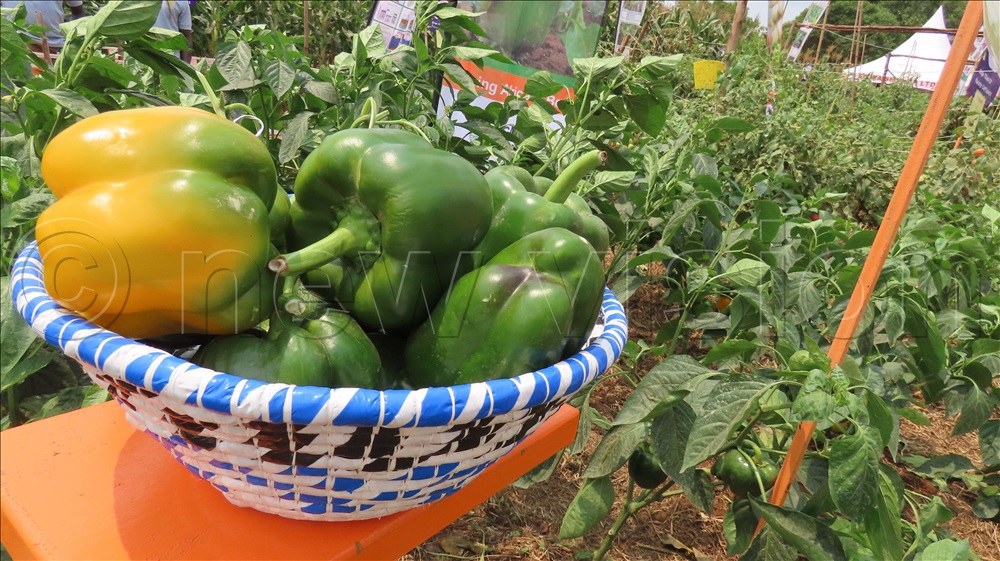By Titus Kakembo
For ten days, Jinja City became the epicentre of agricultural innovation as it hosted the annual Agricultural Fair. Attendees from neighbouring countries and distant districts such as Karamoja and Kabale flocked to the event, exploring stalls, exchanging business cards, and learning about tools, seeds, and market opportunities.
Impressed by the exhibitions and opportunities in place, the Minister of State for Animal Industry, Bright Rwamirama, urged citizens to harness technology to unlock their economic potential.
“Why should anyone in Uganda go hungry when we have the longest river and the largest lake in Africa?” Rwamirama asked rhetorically.
“We should be ashamed of importing rice, groundnuts, peas, mangoes, carrots and potatoes. With the resources showcased at this fair, Uganda can feed Africa with cereals, fruits, dairy products, poultry, and fish. All it takes is technology and a change in mindset.”
Monetary institutions
True to his word, the stalls exhibited hybrid seeds, fertilizers, tractors, harvesters and irrigation machines. Monetary institutions were in place to tell farmers how they could be of help to enable access to modern farm inputs.

Bank of Uganda tipped attendees that the Uganda Development Bank has funds on friendly lending terms to help farmers invest in machines and hybrid seeds to boost the harvest volumes and livelihood of the citizens.
At their stall, the Bank of Uganda emphasized the importance of maintaining accurate books, keeping thorough records, and having solid business plans and projections to benefit from the country’s numerous financial institutions.
Uganda Development Bank (UDB) CEO Ojangole Patricia in an earlier engagement had tipped the area saying, “We have funds available to help you recover from the two years of COVID-19 lockdown, but there are conditions. Many in your community have already received support. With a clean credit record, you can access multiple credit providers, provided you meet their eligibility criteria.”
Potential beneficiaries were visibly excited to hear about the financing opportunities available through UDB.
Ojangole highlighted that the bank has already helped cover costs for tractors and harvesting equipment, and bought vehicles – showcasing their commitment to supporting local farmers and SMEs.
The Opportunity Bank stall drew large crowds with its display of durable John Deere tractors, priced between sh62 million and sh97 million, depending on horsepower and specific needs. The farm inputs that the bank does not have are financed on a loan basis at friendly and flexible terms.
“A loan can be used to buy a boat for transporting agricultural produce from Jinja to Entebbe, invest in fish farming, or explore agricultural tourism,” explained Agriculture Finance Supervisor Edith Batuuka.
“Our loans are available based on your financial records, account books, and business goals.”
Batuuka highlighted various opportunities in fish farming, poultry, dairy, beekeeping, piggery, and cereal crops, noting that 90 percent of the wheat consumed in Uganda is imported despite its lower water requirements compared to other crops.
John Musoke from Kamuli shared how a tractor has transformed his farming operations.
“Using a tractor has made land preparation much easier compared to physical labour, which can be unreliable and expensive. When I’m not using the tractor on my farm, neighbours hire it for Sh120,000 per acre, and the work is completed in just four hours. The tractor works the soil more deeply than a hoe,” Musoke explained.
“Laborers are often at the mercy of their health and the weather, which affects their productivity.”
Energy options
At the fair, visitors were introduced to a range of innovative solar energy appliances, including water pumps, cereal driers, and groundnut shellers. These cutting-edge technologies offer sustainable solutions to energy needs, particularly in rural areas.
The solar water pumps are designed to efficiently irrigate crops without the dependency on unreliable power sources, while the solar-powered cereal driers help farmers preserve their harvests with minimal energy costs.
Additionally, the groundnut shellers enhance processing efficiency, reducing manual labour and increasing productivity. These energy options not only support agricultural advancements but also promote environmental sustainability by harnessing the power of the sun.
Fertilizers
Business-to-business attendees were told embracing the use of fertilizers is crucial for reducing Uganda’s dependence on imported rice and groundnuts from neighbouring countries.
By optimizing soil fertility and enhancing crop yields, fertilizers can significantly boost local production and help meet domestic demand. Increased use of fertilizers ensures that crops receive the essential nutrients needed for robust growth, leading to higher quality and quantity of harvests.
This shift not only decreases reliance on imports but also strengthens the resilience of local agriculture, contributing to greater food security and economic stability within the country. Investing in fertilizers is a strategic move towards achieving self-sufficiency and reducing the economic burden of importing staple foods.





